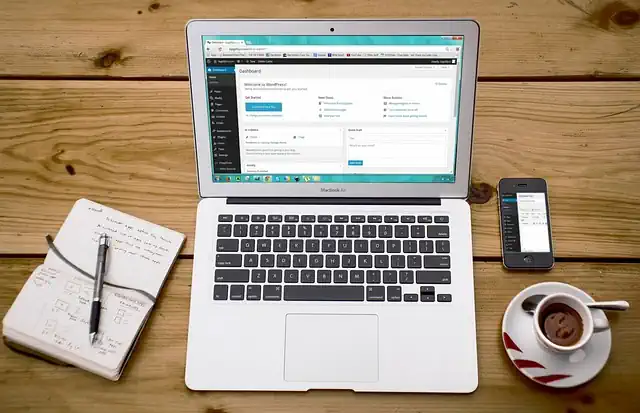How Can I Save Money With A Heat Pump In The Winter
Introduction

Introduction: A heat pump is an energy-efficient heating system that can help you save money on your winter heating bills. By using electricity to move heat from the outdoor air or ground into your home, a heat pump can provide warmth at a lower cost than traditional heating systems. In this article, we will explore how you can save money with a heat pump in the winter.
Benefits of Using a Heat Pump for Winter Heating
As winter approaches, many homeowners are looking for ways to save money on their heating bills. One option that has gained popularity in recent years is the use of a heat pump. Heat pumps are an energy-efficient alternative to traditional heating systems, and they can help you save money on your winter heating costs.
One of the main benefits of using a heat pump for winter heating is that it is much more energy-efficient than traditional heating systems. Heat pumps work by transferring heat from the outside air into your home, rather than generating heat from scratch. This means that they use less energy to heat your home, which can result in significant savings on your energy bills.
Another benefit of using a heat pump for winter heating is that it can help to improve the air quality in your home. Traditional heating systems can often circulate dust, allergens, and other pollutants throughout your home, which can be harmful to your health. Heat pumps, on the other hand, do not produce any emissions or pollutants, which means that they can help to improve the air quality in your home.
In addition to being more energy-efficient and improving air quality, heat pumps are also very versatile. They can be used for both heating and cooling, which means that you can use them year-round to keep your home comfortable. This can be especially beneficial if you live in a region with extreme temperature fluctuations throughout the year.
One of the most significant benefits of using a heat pump for winter heating is the potential cost savings. While the initial cost of installing a heat pump may be higher than that of a traditional heating system, the long-term savings can be significant. According to the U.S. Department of Energy, homeowners can save up to 50% on their heating bills by using a heat pump instead of a traditional heating system.
There are also several other ways that you can save money with a heat pump in the winter. For example, many heat pumps come with programmable thermostats, which allow you to set the temperature in your home based on your schedule. This means that you can lower the temperature when you are not at home, which can help to reduce your energy bills.
Another way to save money with a heat pump is to ensure that it is properly maintained. Regular maintenance can help to ensure that your heat pump is running efficiently, which can help to reduce your energy bills. It can also help to extend the lifespan of your heat pump, which can save you money on repairs and replacements in the long run.
In conclusion, using a heat pump for winter heating can provide many benefits, including improved energy efficiency, better air quality, and cost savings. While the initial cost of installing a heat pump may be higher than that of a traditional heating system, the long-term savings can be significant. By properly maintaining your heat pump and using it in conjunction with a programmable thermostat, you can maximize your cost savings and enjoy a comfortable, energy-efficient home all winter long.
Maximizing Energy Efficiency with Your Heat Pump
As winter approaches, many homeowners are looking for ways to save money on their heating bills. One option that has gained popularity in recent years is the use of a heat pump. Heat pumps are an energy-efficient alternative to traditional heating systems, and they can help you save money on your energy bills while keeping your home warm and comfortable.
So, how can you save money with a heat pump in the winter? The key is to maximize the energy efficiency of your system. Here are some tips to help you get the most out of your heat pump this winter:
1. Set your thermostat wisely
One of the easiest ways to save money with a heat pump is to set your thermostat wisely. In general, you should set your thermostat to the lowest comfortable temperature. For most people, this is around 68 degrees Fahrenheit. If you’re feeling chilly, try putting on a sweater or using a blanket instead of turning up the heat.
You should also avoid turning your heat pump off completely when you’re not home. Instead, set your thermostat to a lower temperature while you’re away. This will help your heat pump use less energy and save you money on your energy bills.
2. Keep your filters clean
Another important factor in maximizing the energy efficiency of your heat pump is to keep your filters clean. Dirty filters can restrict airflow and make your heat pump work harder than it needs to. This can lead to higher energy bills and a shorter lifespan for your system.
To keep your filters clean, you should check them regularly and replace them as needed. Most filters should be replaced every one to three months, depending on how often you use your heat pump.
3. Seal air leaks
Air leaks can also reduce the energy efficiency of your heat pump. If your home has air leaks, your heat pump will have to work harder to keep your home warm. This can lead to higher energy bills and a less comfortable home.
To seal air leaks, you should check your windows and doors for gaps and cracks. You can use weatherstripping or caulking to seal these gaps and prevent air leaks. You should also check your ductwork for leaks and seal any gaps or cracks you find.
4. Use a programmable thermostat
A programmable thermostat can also help you save money with your heat pump. With a programmable thermostat, you can set your heat pump to turn on and off at specific times. This can help you save energy and money by reducing the amount of time your heat pump runs when you’re not home.
5. Schedule regular maintenance
Finally, scheduling regular maintenance for your heat pump is essential for maximizing its energy efficiency. A professional HVAC technician can inspect your system, clean your filters, and make any necessary repairs. This can help your heat pump run more efficiently and save you money on your energy bills.
In conclusion, a heat pump can be a great way to save money on your heating bills this winter. By setting your thermostat wisely, keeping your filters clean, sealing air leaks, using a programmable thermostat, and scheduling regular maintenance, you can maximize the energy efficiency of your heat pump and enjoy a warm and comfortable home without breaking the bank.
Tips for Maintaining Your Heat Pump to Save Money
As winter approaches, many homeowners are looking for ways to save money on their heating bills. One option that has gained popularity in recent years is the use of a heat pump. Heat pumps are an energy-efficient alternative to traditional heating systems, and they can help you save money on your heating bills. However, like any heating system, a heat pump requires regular maintenance to ensure that it is working efficiently. In this article, we will discuss some tips for maintaining your heat pump to save money.
The first tip for maintaining your heat pump is to clean or replace the air filter regularly. The air filter is responsible for removing dust and other particles from the air before it is circulated through your home. Over time, the filter can become clogged with dirt and debris, which can reduce the efficiency of your heat pump. By cleaning or replacing the air filter regularly, you can ensure that your heat pump is working at its best and save money on your heating bills.
Another tip for maintaining your heat pump is to keep the outdoor unit clear of debris. The outdoor unit of your heat pump is responsible for transferring heat from the outside air to the inside of your home. If the unit is covered in leaves, grass, or other debris, it can reduce the efficiency of your heat pump. By keeping the outdoor unit clear of debris, you can ensure that your heat pump is working efficiently and save money on your heating bills.
In addition to cleaning the air filter and keeping the outdoor unit clear of debris, it is also important to have your heat pump serviced regularly by a professional. A professional technician can inspect your heat pump for any issues and make any necessary repairs or adjustments. Regular maintenance can help prevent costly repairs and ensure that your heat pump is working efficiently, which can save you money on your heating bills.
Finally, it is important to use your heat pump efficiently to save money on your heating bills. One way to do this is to set your thermostat to a comfortable temperature and leave it there. Constantly adjusting the thermostat can cause your heat pump to work harder than necessary, which can increase your heating bills. Additionally, you can save money by using a programmable thermostat to adjust the temperature when you are away from home or asleep.
In conclusion, a heat pump can be an energy-efficient alternative to traditional heating systems, but it requires regular maintenance to ensure that it is working efficiently. By cleaning or replacing the air filter regularly, keeping the outdoor unit clear of debris, having your heat pump serviced regularly by a professional, and using your heat pump efficiently, you can save money on your heating bills and enjoy a comfortable home during the winter months.
Comparing the Cost of Heat Pump vs. Traditional Heating Methods
As winter approaches, many homeowners are looking for ways to save money on their heating bills. One option that has gained popularity in recent years is the heat pump. But how does it compare to traditional heating methods in terms of cost?
First, let’s define what a heat pump is. A heat pump is a device that transfers heat from one location to another. In the winter, it extracts heat from the outside air and transfers it inside to heat your home. In the summer, it does the opposite, extracting heat from inside your home and transferring it outside to cool your home.
Now, let’s compare the cost of using a heat pump versus traditional heating methods such as a furnace or electric baseboard heaters. The cost of a heat pump varies depending on the size of your home and the type of heat pump you choose. However, on average, a heat pump can cost anywhere from $3,000 to $10,000 to install.
In terms of operating costs, a heat pump is generally more efficient than traditional heating methods. This is because it doesn’t generate heat, but rather transfers it from one location to another. According to the U.S. Department of Energy, a heat pump can save homeowners up to 50% on their heating bills compared to electric baseboard heaters.
Another factor to consider is the cost of fuel. If you currently use oil or propane to heat your home, switching to a heat pump can save you a significant amount of money. This is because the cost of electricity is generally lower than the cost of oil or propane.
However, if you currently use natural gas to heat your home, the cost savings may not be as significant. This is because natural gas is generally cheaper than electricity. In this case, it’s important to weigh the upfront cost of installing a heat pump versus the potential long-term savings on your heating bills.
It’s also important to consider the climate in your area. Heat pumps work best in moderate climates where the temperature doesn’t drop below freezing for extended periods of time. If you live in an area with harsh winters, a heat pump may not be the most efficient option for heating your home.
In conclusion, a heat pump can be a cost-effective option for heating your home, especially if you currently use electric baseboard heaters or oil/propane. However, it’s important to consider the upfront cost of installation and the potential long-term savings on your heating bills. It’s also important to consider the climate in your area and whether a heat pump is the most efficient option for your home. By weighing these factors, you can make an informed decision on whether a heat pump is right for you.
Incentives and Rebates for Installing a Heat Pump in Your Home
As winter approaches, many homeowners are looking for ways to save money on their heating bills. One option that has gained popularity in recent years is the use of a heat pump. Not only can a heat pump provide efficient heating during the winter months, but it can also provide cooling during the summer months. However, the initial cost of installing a heat pump can be a deterrent for some homeowners. Fortunately, there are incentives and rebates available that can help offset the cost of installation.
One of the most significant incentives for installing a heat pump is the federal tax credit. This credit allows homeowners to receive a tax credit of up to 30% of the cost of installation, up to a maximum of $1,500. To be eligible for this credit, the heat pump must meet certain energy efficiency requirements. Specifically, it must have a heating seasonal performance factor (HSPF) of at least 8.5 and an energy efficiency ratio (EER) of at least 12.5. It is important to note that this tax credit is set to expire at the end of 2021, so homeowners who are considering a heat pump installation should act quickly to take advantage of this incentive.
In addition to the federal tax credit, there are also state and local incentives available for installing a heat pump. These incentives vary by location, but they can include rebates, tax credits, and low-interest loans. Homeowners should check with their state and local governments to see what incentives are available in their area.
Another option for homeowners who are looking to save money on their heating bills is to participate in a demand response program. These programs are offered by many utility companies and allow homeowners to receive a credit on their bill in exchange for reducing their energy usage during times of high demand. Heat pumps are an ideal technology for demand response programs because they can be easily controlled remotely and can provide both heating and cooling.
Finally, homeowners who are considering a heat pump installation should also look into financing options. Many manufacturers and installers offer financing programs that can help spread out the cost of installation over time. These programs can include low-interest loans, deferred payment plans, and other financing options that can make the cost of installation more manageable.
In conclusion, while the initial cost of installing a heat pump can be a deterrent for some homeowners, there are incentives and rebates available that can help offset the cost. From federal tax credits to state and local incentives, there are many options available for homeowners who are looking to save money on their heating bills. Additionally, participating in a demand response program and exploring financing options can also help make the cost of installation more manageable. By taking advantage of these incentives and exploring all of the options available, homeowners can enjoy the benefits of a heat pump while also saving money on their energy bills.
Conclusion
Conclusion: A heat pump can help you save money in the winter by efficiently heating your home. By using the heat pump’s energy-saving features, such as setting the temperature lower when you’re not home, you can reduce your energy bills. Additionally, regular maintenance and proper installation can ensure that your heat pump is working at its best, further increasing its efficiency and cost savings.







